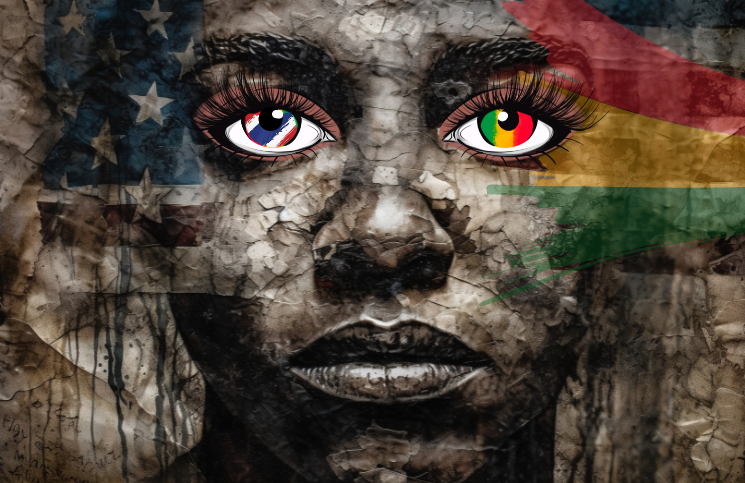by Paula Paris
Juneteenth begins a three-part celebration
"For to be free is not merely to cast off one’s chains, but to live in a way that respects and enhances the freedom of others."
--Nelson Mandella
This year on June 19 all 50 United States observed Juneteenth as a federal holiday. There was no mail delivery, and schools were closed in many districts. There were celebrations from picnics and barbecues to parades, musical performances, art exhibits and educational lectures in communities across the state and the country. Festivities in Boston began on June 14 and continued for another week. Many of those events were sold out. Admission to the Museum of Fine Arts was free on the 19th.
But why another holiday? What is this Juneteenth and what does it mean?
The name is a descriptive contraction of June nineteenth, a significant day in the country’s history.
Juneteenth, Jubilee Day or “Freedom Day,” is actually one of the oldest commemorations of the ending of slavery in the United States. Its origin lies deep in the heart of Texas.
It was on June 19, 1865, that Major General Gordon Granger led a company of Union soldiers to Galveston, Texas, to announce publicly that the war was over and that all enslaved persons were to be freed. This was certainly a cause for celebration.
What is particularly significant about the day and the year is that President Abraham Lincoln had signed the Emancipation Proclamation on January 1, 1863, two and a half years before.
Why did it take so long for the news to get to Texas? The short answer is economics.
There were a limited number of Union troops to enforce the proclamation, and there were still crops to be harvested and money to be made from those crops. So there was little incentive for landowners to set free an uncompensated labor force.
Often called “America’s second Independence Day,” Juneteenth in Texas and other parts of the American South was celebrated as a time to re-unite with family members who had been separated as a result of war or enslavement, with many formerly enslaved and their descendants making pilgrimages back to Galveston on June 19.
But it was not until January 1, 1980, that Juneteenth became an official state holiday in Texas through the efforts of Al Edwards, an African American state legislator. The successful passage of the bill marked Juneteenth as the first emancipation celebration granted official state recognition. Subsequently Edwards actively sought to spread the observance of Juneteenth across the country.
In 1996 the first legislation to recognize “Juneteenth Independence Day” was introduced in the U.S. House of Representatives by Barbara Rose Collins (D-MI). In 1997 Congress recognized the day through a Joint Resolution. In 2013 the U.S. Senate passed a resolution acknowledging Lula Briggs Galloway, the late president of the National Association of Juneteenth Lineage, who successfully worked to bring national recognition to Juneteenth Independence Day.
In 2016, at the age of 89, Opal Lee, a former teacher and lifelong activist, made national headlines by walking 1400 miles from her home in Fort Worth, Texas, to Washington DC to get Juneteenth recognized as a national holiday.
Five years later, on June 15, 2021, a bill introduced by Massachusetts Senator Edward Markey which garnered bi-partisan support was approved by the Senate making Juneteenth a legal holiday. Then, with Opal Lee by his side, President Joe Biden signed the bill into federal law.
Prior to that, at the local level, in 1984 the Boston City Council passed a resolution to recognize June 14 – June 23 as Juneteenth Week that year.
It would take until July 24, 2020, for Juneteenth to become a state holiday when Governor Charlie Baker signed it into law, “establishing Juneteenth Independence Day as an annual state holiday on June 19 in order to recognize the continued need to ensure racial freedom and equality.”
House Speaker Robert A. DeLeo voiced his support in a Twitter post saying that the commemoration “reminds us of the most painful parts of America’s history and shows us that while progress is possible, we have much more to do.”
On July 4, we will celebrate America’s freedom from British rule. Then, on July 8, for the first time, Massachusetts will honor Quock Walker, a formerly enslaved man who sued for his freedom and won in 1783. (More about that in a subsequent blog.)
However or wherever you celebrate any of these uniquely American holidays, think of the Season of Freedom from June 19 to July 4 to July 8 as a time to reflect on what freedom should mean for all Americans—and what we can all do to make it truly ring.
Paula Paris is Deputy Director of JFYNetWorks
Other posts authored by Paula can be found here.
HOW ARE WE DOING? In our pursuit to serve up content that matters to you, we ask that you take a couple of minutes to let us know how we’re doing? Please click here to be navigated to our JFYNet Satisfaction Survey. Thank you!











